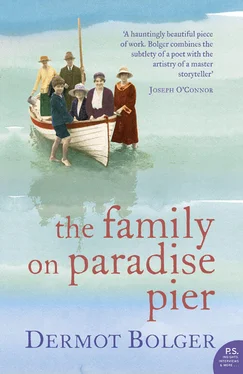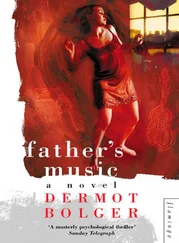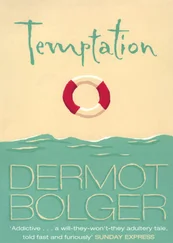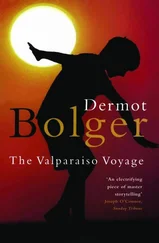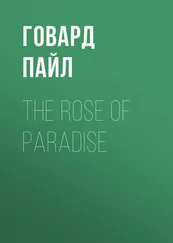She had dreaded Mr Ffrench announcing his intention to return to Moscow and reclaim their corner of that pigsty room. However he had kept postponing this decision because it was vital to be able to fully contribute to the new order and he feared being a dead weight who would drag down production targets for their comrades in the furniture factory. Besides he had affairs in Britain to put in order and people should be told at first hand about how exhilarating life was in the new Bolshevik state. Mrs Ffrench had agreed with everything her husband said, unable to decode what was going on in his head. All she could do was trust that, unbeknownst to him, her spiritual master, Abdul-Baha, was guiding her husband’s hand. She had decided it prudent not to force him into confronting any decision. Such careful passivity on her part got them to London and now to Donegal where the mayhem of the Irish Civil War seemed halted and tonight at least everything seemed like it had always been.
Eva Goold Verschoyle shyly released her hand from Mrs Ffrench’s grip as Art eagerly questioned her husband in the doorway.
‘How was Moscow? You have to tell me everything!’
Mr Ffrench gripped the boy’s shoulder joyously. ‘My dear boy, it is everything we dreamt of, the most just society on this earth. Mankind hasn’t known a fresh start since the Garden of Eden. But in Russia the old rules are gone and the people, not their masters, are shaping the new order. Come inside and I’ll tell you everything. Is there nobody about? I wired for your father to reinstate some servants.’
‘You did?’ Art sounded surprised. ‘I fought with Father, saying that he must have misunderstood the telegram. I mean, what would you want servants for?’
Mr Ffrench laughed. ‘What would I want them for? Dear boy, do you know the size of Bruckless House? It would be an injustice to only have two people living here. The important thing is to fill the house with life. Obviously servants is a reactionary term, but you can imagine what Papist clergy would say if I advertised for worker comrades to share my home.’
‘You mean you’re looking for local people to live here with you.’
‘Obviously. They will have the full run of their quarters and we shall have the run of ours.’
Mrs Ffrench watched the boy consider this. In truth he was a boy no longer. Eva’s tiny figure still lent her a girlish look, but Art’s shoulders had broadened out, making him look tough and strikingly good-looking. He reminded her of her brothers lost in the war. Once on a Moscow street she was convinced that she had seen her two brothers side by side ahead of her in the jostling crowd. For a moment she had let herself believe that they had not gone missing in action but simply wandered off from the terrible trenches to find their way to this new land. The hope was ludicrous, but she had been unable to stop herself pushing through the crowd, elbowing strangers and being cursed at until she touched one of their shoulders. Both men turned, neither remotely resembling her brothers now she could see their faces and she had felt their eyes undress her, taking in her manic look and the fact that she was foreign. They had looked hungry, as everyone did in Moscow, but strong and when they addressed her she knew immediately that their remarks were lewd, suggesting that they would be willing to share her body. She had run away and never told her husband what happened.
Mrs Ffrench entered the hallway of Bruckless House and almost cried to see a wood fire burning in the grate. Art and Eva had been busy, with another fire burning in the study. Returning home as a girl from her first term in boarding school, she could remember how small the rooms in her childhood home seemed, but after Moscow the opposite was true of here. Previously she had paid little attention to the size of this study, but now she realised that it was bigger than the awful room where she had been forced to sleep with the squabbling families. Sitting down on the sofa she surveyed its fantastic dimensions. She almost wished for the Goold Verschoyle children and even her husband to be gone so that she could explore each room and luxuriate in the extraordinary space. This physical greed shocked her. She was never greedy before, dutifully sublimating her needs and dreams to those of her husband. But just now she experienced an almost sexual thrill at the thought of cradling the brass doorknob of each bedroom, at pressing her palms against the huge uncracked windowpanes and placing her cheek to the cold mahogany of her dressing table.
Eva’s questions about Moscow were discreet enquiries compared to Art’s frenzied interrogation of her husband. The boy had studied Moscow street maps and knew more about the city’s layout than Mrs Ffrench had learnt in seven months of living there. He wanted to know every detail of the crowds at Lenin’s funeral and quizzed her husband about Comrades Zinoviev and Stalin and Trotsky and Kamenev as if Mr Ffrench had spent his days at internal party congresses instead of manufacturing poor-quality tables and chairs.
‘The failure of the communist revolt in Germany was a blow to Trotsky’s prestige,’ Mr Ffrench was saying. ‘It shows that the spread of the revolution will be slower than expected because Germany is ripe for change and yet the reactionary forces dug in. If our German comrades had won the day all of Europe would rise with us but there is talk of Russia needing to stand alone for a while longer.’
‘But surely Moscow won’t abandon the rest of us?’ Art argued. ‘What is the point in mankind taking one step forward and then simply stopping?’
‘Who mentioned stopping?’ Mr Ffrench replied. ‘Moscow cannot be a wet nurse to everyone. It is up to us who live here to fan the flames of revolution.’
Art went quiet and even Eva ceased to prattle on about the scraps of local gossip that Mrs Ffrench had been enjoying. There was a subtext in her husband’s remark, a Rubicon quietly crossed, a declaration she had not dared to seek from him. Hope surged inside her in direct opposition to Art’s baffled disbelief.
‘What do you mean by us ?’ he enquired. ‘Surely once you recuperate you will return to Russia. I understand your desire to come back here and recover your strength, but…’
‘Desire did not enter into it,’ Mr Ffrench interjected. ‘It was necessity. Because I could seek medical treatment elsewhere it would therefore have been a selfish, counter-revolutionary act to deny a comrade treatment by clogging up a Moscow hospital. Medical supplies are crucial, as are able-bodied workers. My arm will never fully recover. The revolution is no rest home for cripples. Do you think I wish to be a parasite in Moscow, living off the sweat of my fellow workers? Mrs Ffrench and I had no desire to ever return to Donegal. Crossing into Finland was the hardest chore we ever did. I curse my disability for dragging Janet away from an environment where I saw her blossom with such happiness and purpose. But personal feelings cannot be allowed to rule. What is vital is that we each contribute to the maximum of our potential. I was shocked in London to read appalling propaganda in the capitalist newspapers. Janet and I have decided that for now our place in the revolution is here where we can counter lies and bear testament to the amazing society that we were privileged to witness and to which one day we will hopefully return. Here we can serve a purpose which you can help with too. The Irish peasants imagine that they have undergone a revolution, but they’ve just swapped one master on horseback for another. We can show them the truth – and do you know the great thing? They will listen to us because even in my short time back I see that the old respect remains for people who speak with authority. They don’t look up to this new Johnny-Come-Lately Free State government trying to lord it over them. Oh, no doubt there will be fireworks with their priests waving sticks and shouting threats from the far side of the bridge leading onto my property but they can’t stop us telling the truth to those who will listen.’
Читать дальше
